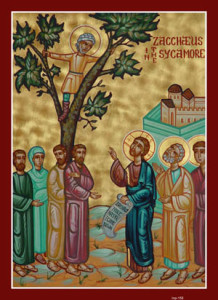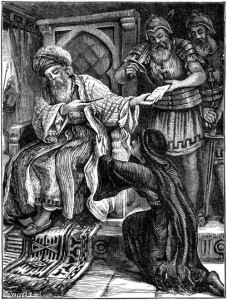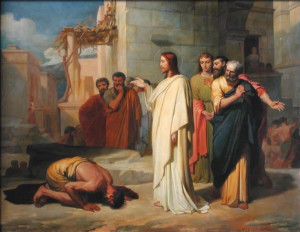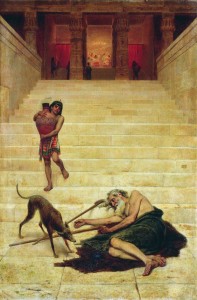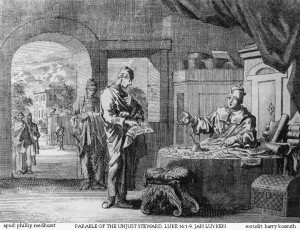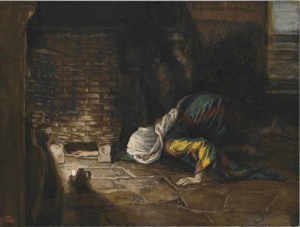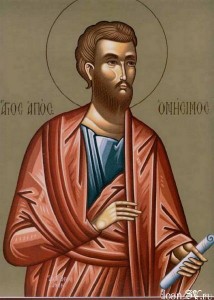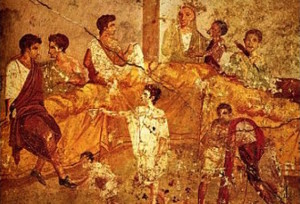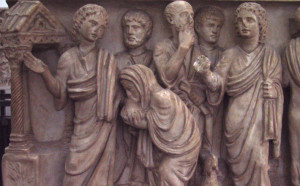Thoughts on Today’s Lessons for Oct. 30, 2016
First Reading: Habakkuk 1:1-4; 2:1-4Does Habakkuk’s name sound familiar? If not, that may be because this year marks its only appearance in the three-year Lectionary cycle of Sunday readings. Only three chapters long, this book is both unusual and fascinating. Unlike most of the prophets who hear God’s word and pass it on to humanity, Habakkuk shouts out his own warnings, then turns to God with frustration because he feels that God doesn’t seem to be listening, leaving Habakkuk alone to make prophetic warning to the people without God’s assistance. God then responds, directing Habakkuk to write his vision down so clearly that a runner can read it while racing past.
First Reading (Track Two): Isaiah 1:1, 10-18
Isaiah’s great book of prophecy gets off to a fiery start, beginning with five chapters filled with God’s angry wrath before we even get to God’s call to the prophet. First we must clearly hear God’s anger over the people’s failure to keep the covenant that their ancestors made through Moses at Mount Sinai. We hear that wrath in today’s reading, as God likens Israel to Sodom and Gomorrah, a people so vile that God hates them and their works. But, as always, there is a way to restore God’s love: “Cease to do evil, learn to do good; seek justice, rescue the oppressed, defend the orphan, and plead for the widow.”
Psalm 119 turns up fairly often in the weekly Lectionary. The longest of all the Psalms, fully 176 verses long, we hear portions of it a dozen times through the three-year lectionary cycle. While it offers different poetry in every section, it remains true to its course as a long, loving celebration of God’s law. Today’s verses may have come as good advice to the people who heard Habakkuk’s prophecy: When trouble and distress come on God’s people, God’s law and teaching are our delight.
Psalm (Track Two): Psalm 32:1-8
Rebounding from the horrific notion of a God too angry to hear the people’s prayers or sacrifices, too outdone to give them even the least attention, our Psalm sings the joy that comes when the separation from God that results from sin is ended, replaced with the utter joy of knowing God’s forgiveness. No longer groaning with pain that feels like withered bones, the repentant sinner is now guarded against trouble and surrounded with shouts of deliverance.
Second Reading: 2 Thessalonians 1:1-4, 11-12
Today we begin a short visit with the second letter to the church of Thessalonika in Northern Greece. This letter probably came a generation after the first letter to the Thessalonians, perhaps around 100 CE, and it was probably written in Paul’s name by a follower long after his death. These early Christians were facing severe Roman persecution, and the letter opens with hearty thanks and gratitude for their steadfast faith despite all that they have had to endure.
Gospel: Luke 19:1-10
What’s this? Another tax collector? Last week we saw Jesus praising a tax collector for his humble prayer; and Jesus even called a tax collector, Matthew, as one of his apostles. The Pharisees often criticized Jesus for hanging around with prostitutes and tax-collectors – the most insulting occupations they could think of – because they traitorously sold their services to the hated Roman occupiers, and often used this position to enrich themselves. and now today we find Jesus shouting out to another tax collector, the diminutive Zacchaeus, who had climbed a tree the better to see him. Then Jesus invites himself to dinner at Zacchaeus’ house! Like the praying tax collector in last week’s Gospel, Zacchaeus earns salvation by following Jesus. The message, perhaps, is that if the worst person we can think of can earn redemption by walking in Jesus’ way, surely we all can.

